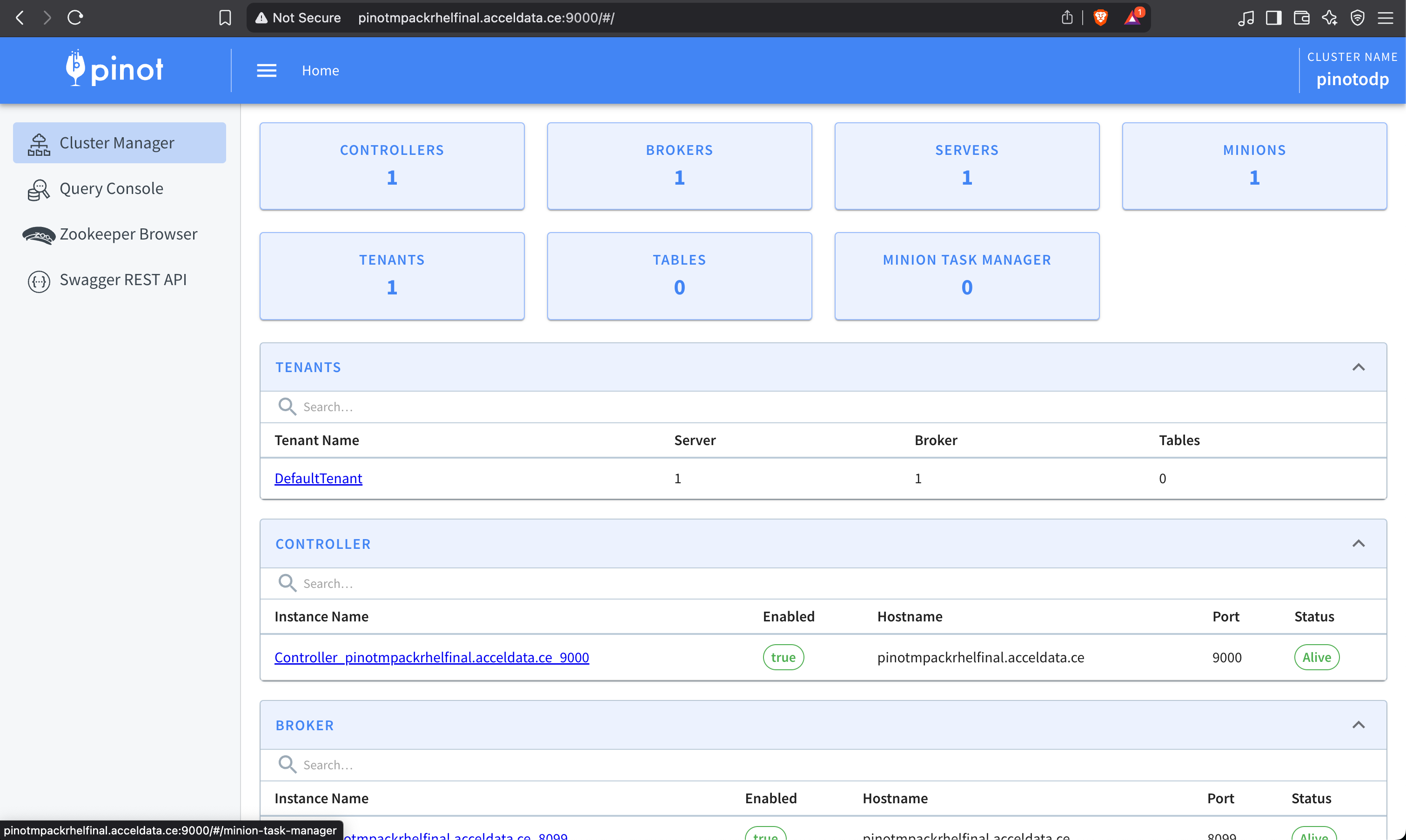Title
Create new category
Edit page index title
Edit category
Edit link
Install Pinot via Mpack
Perform the following steps to install Pinot via Mpack.
Install JDK 11
For RHEL/CentOS systems:
sudo dnf install java-11-openjdk-devel -ypython -m pip install requestsRegister Custom Java 11 with update-alternatives (for Script Compatibility)
If you have installed JDK 11 via a custom method (e.g., extracting from a .tar.gz or placing it under a non-standard path), the following script may fail to detect your Java 11 installation:
This is because the script relies on the output of update-alternatives to find valid Java 11 paths that follow a naming pattern like /usr/lib/jvm/java-11-*. If your custom Java is not registered under this directory, the script will not detect it, even if it is installed and working.
Solution: Register Java 11 (without setting it as default)
You can register your custom Java 11 installation with update-alternatives without making it the system default. This allows the script to locate the JDK while keeping your current system-wide Java version unchanged.
To ensure compatibility with the script, place or link your custom JDK under /usr/lib/jvm/ using a name that starts with java-11.
- Move or link your custom JDK under
/usr/lib/jvm.
sudo mv /path/to/custom/java-11 /usr/lib/jvm/java-11-customAlternatively, create a symlink:
sudo ln -s /path/to/custom/java-11 /usr/lib/jvm/java-11-custom- Register the JDK with update-alternatives.
# Ubuntu/Debian:sudo update-alternatives --install /usr/bin/java java /usr/lib/jvm/java-11-custom/bin/java 1# RHEL/CentOS:sudo alternatives --install /usr/bin/java java /usr/lib/jvm/java-11-custom/bin/java 1- (Optional) Verify the registration:
update-alternatives --display javaYou must now see the /usr/lib/jvm/java-11-custom/bin/java listed as one of the configured alternatives.
Do not run update-alternatives --config java unless you explicitly want to change the system default Java version.
For Ubuntu/Debian systems:
sudo apt install openjdk-11-jdk -ypython -m pip install requestsInstall the Mpack using Ambari:
ambari-server install-mpack --mpack={Pinot_Mpack_Name} --verboseRestart Ambari server:
ambari-server restartBefore installing the service through Ambari, make sure to re-install ODP-SELECT for 3.2.3.X release. Also, make sure to perform this step on all the nodes where you want to install the Pinot service.
Install Pinot Service via Ambari
Use the Ambari UI to install the Pinot service. The process is automated—simply select the target hosts for Pinot components and proceed with the installation.
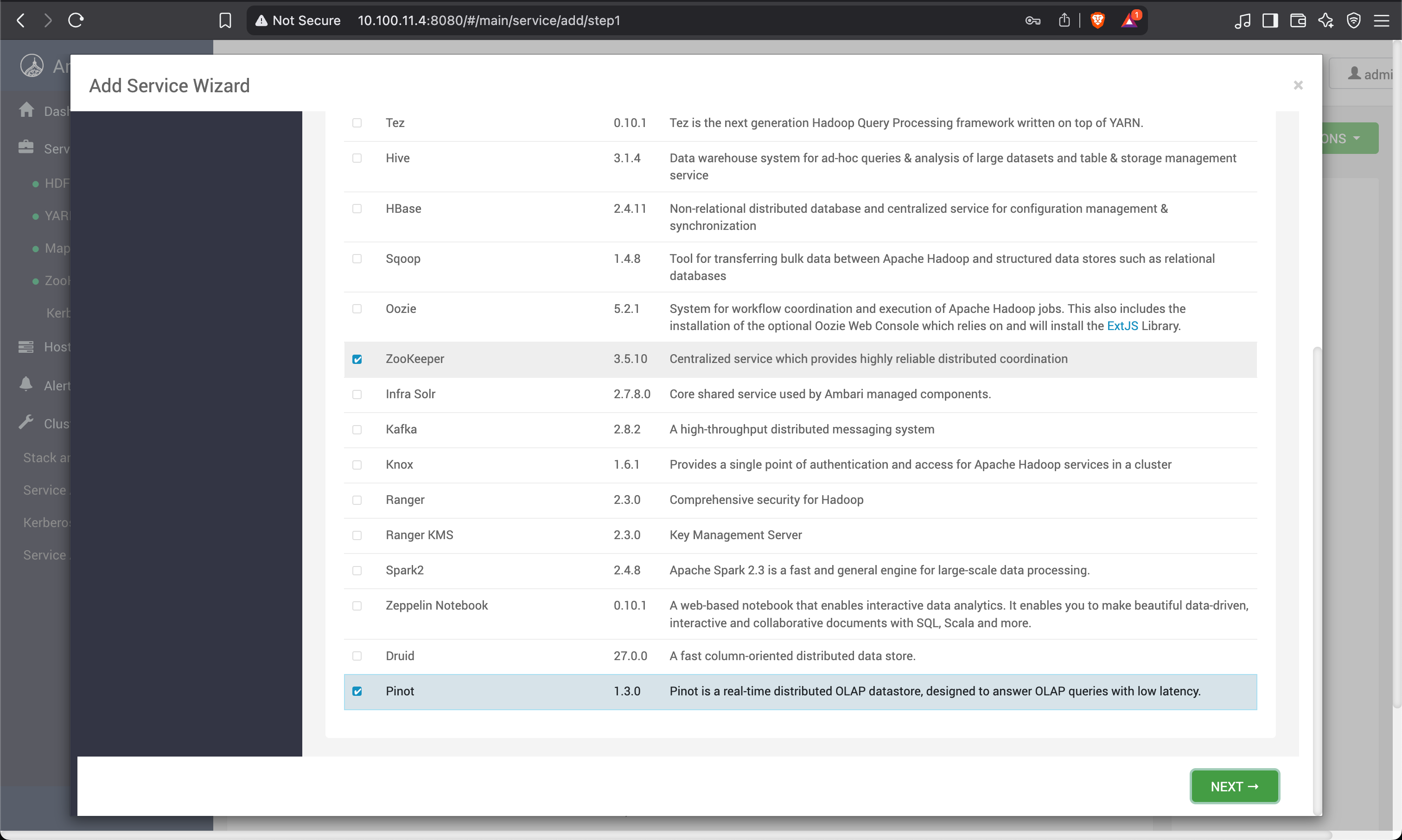
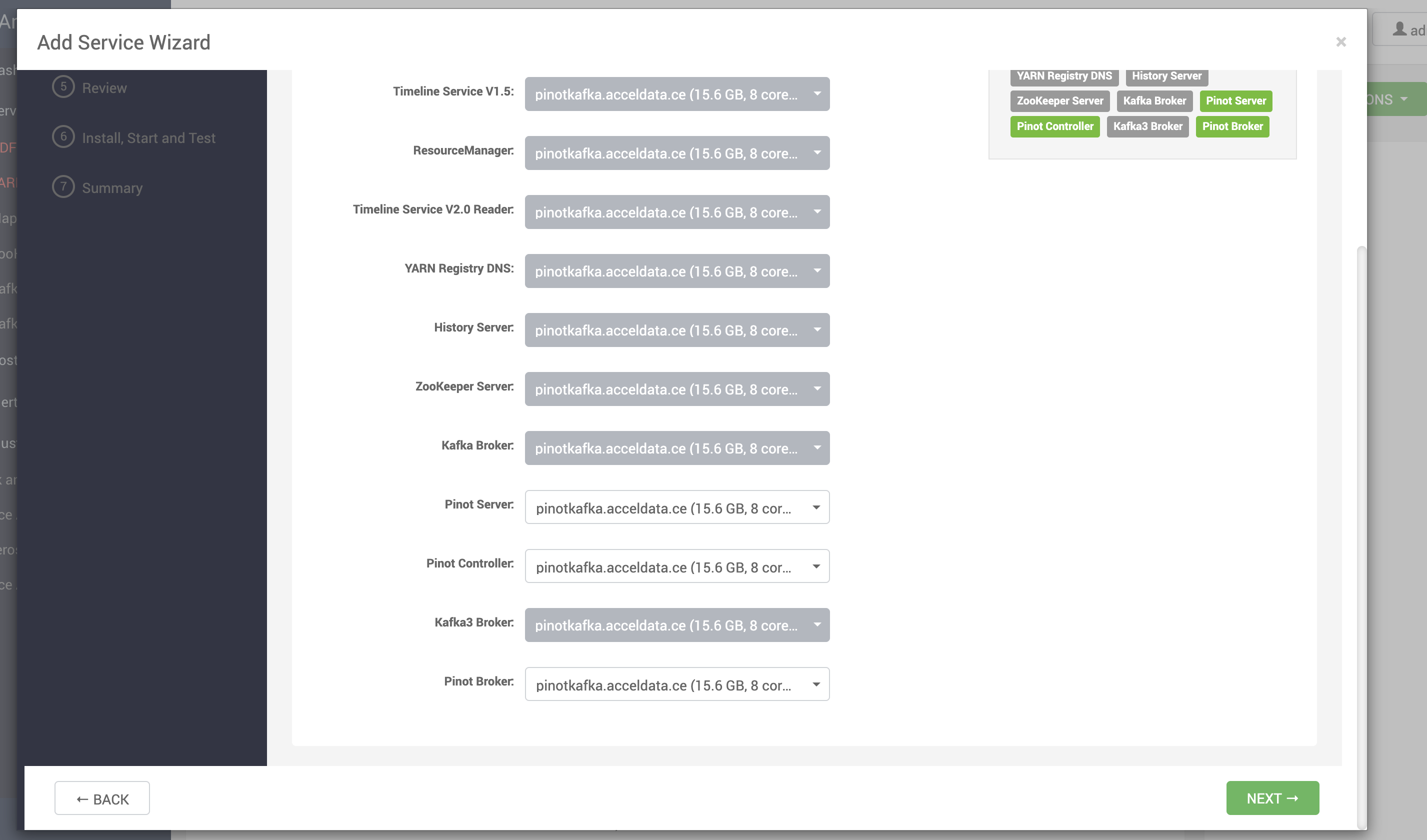
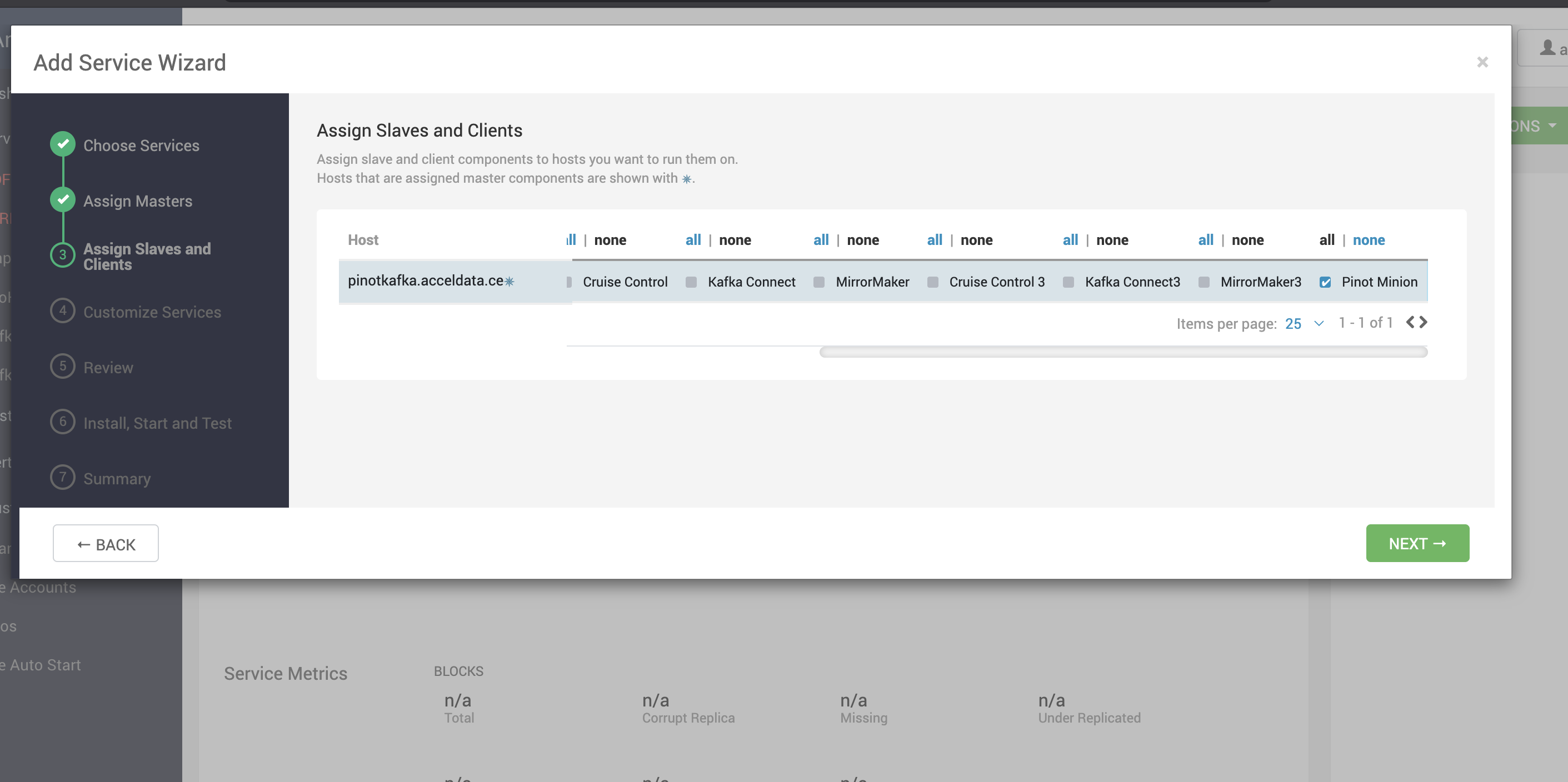
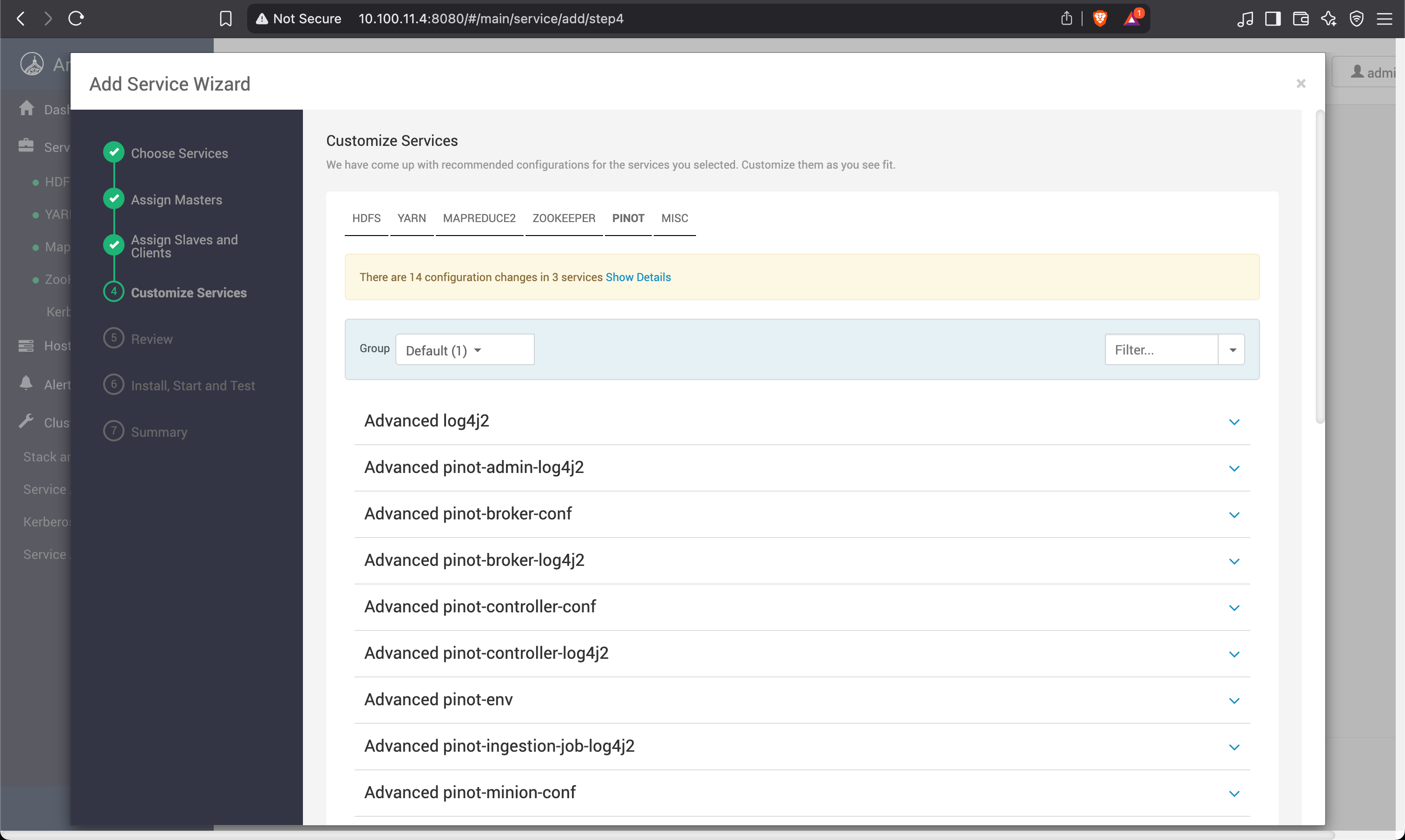
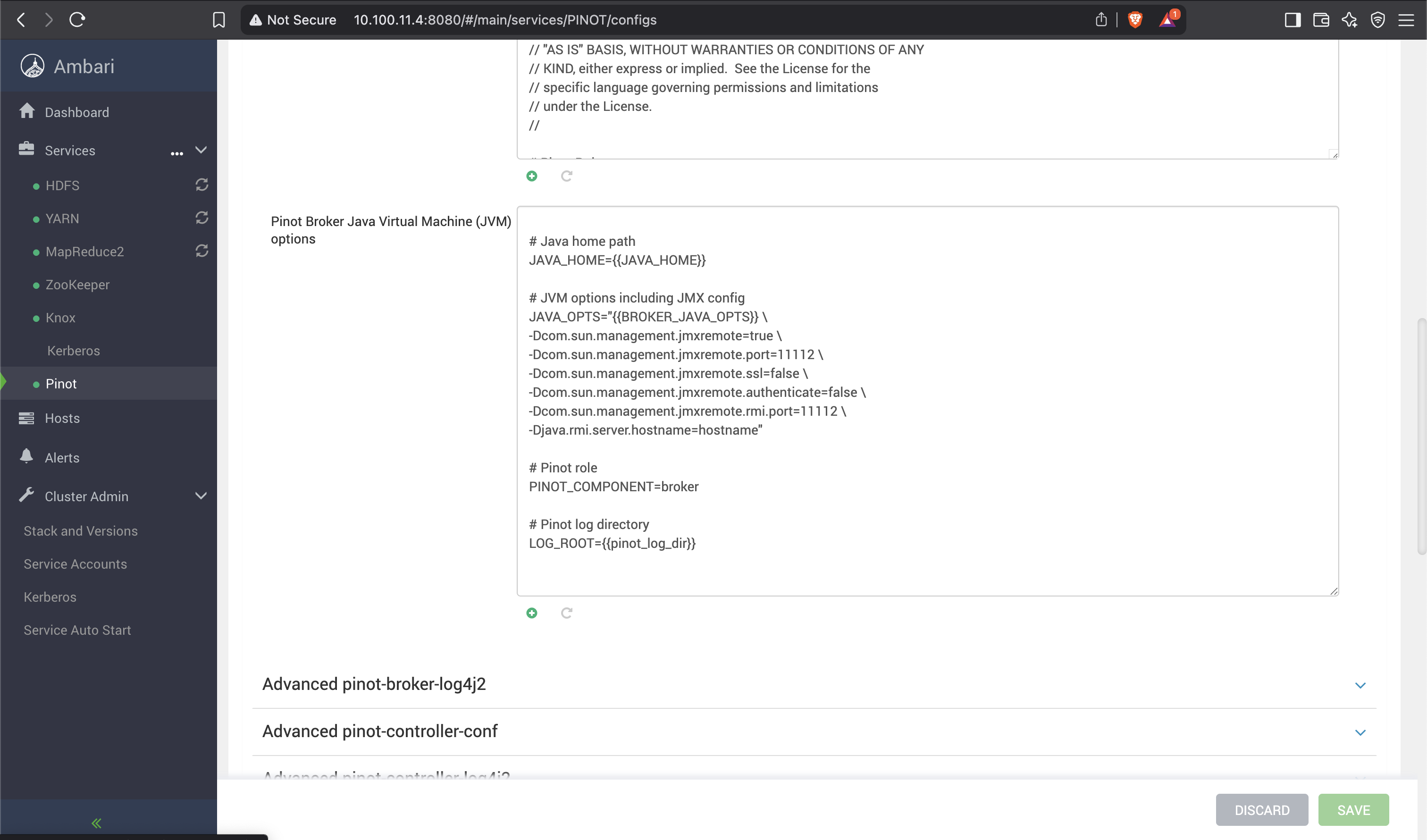
Configure the JVM options in the Pinot Broker Java Virtual Machine (JVM) options.
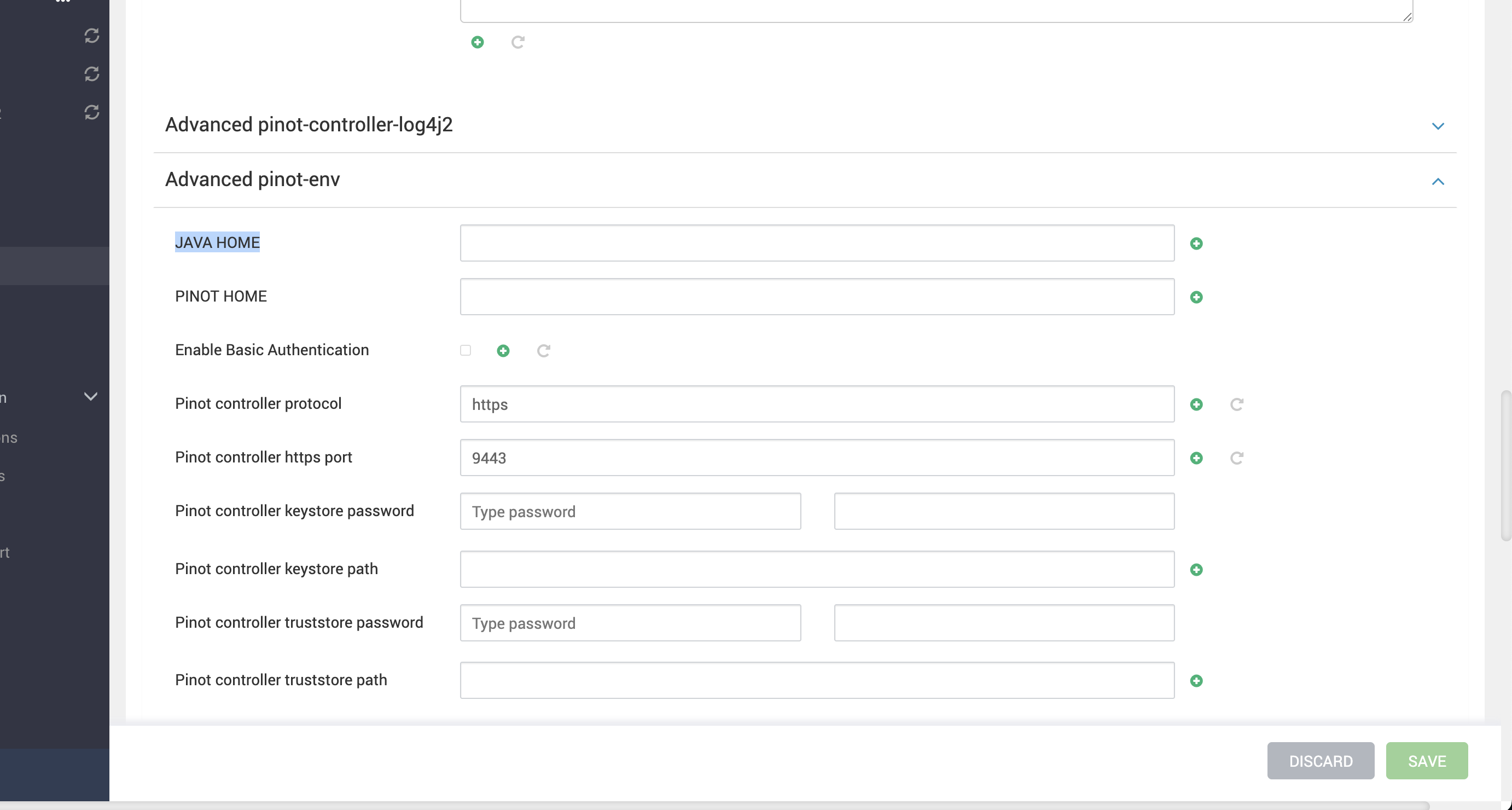
If you're using a custom JDK 11 path and are unable to register it using the update-alternatives command, add the Java 11 path to the JAVA_HOME setting under Advanced pinot-env configuration. For more information, Install JDK 11.
Basic authentication is enabled by default. You can disable it by unchecking the "Basic Auth" option during the setup.
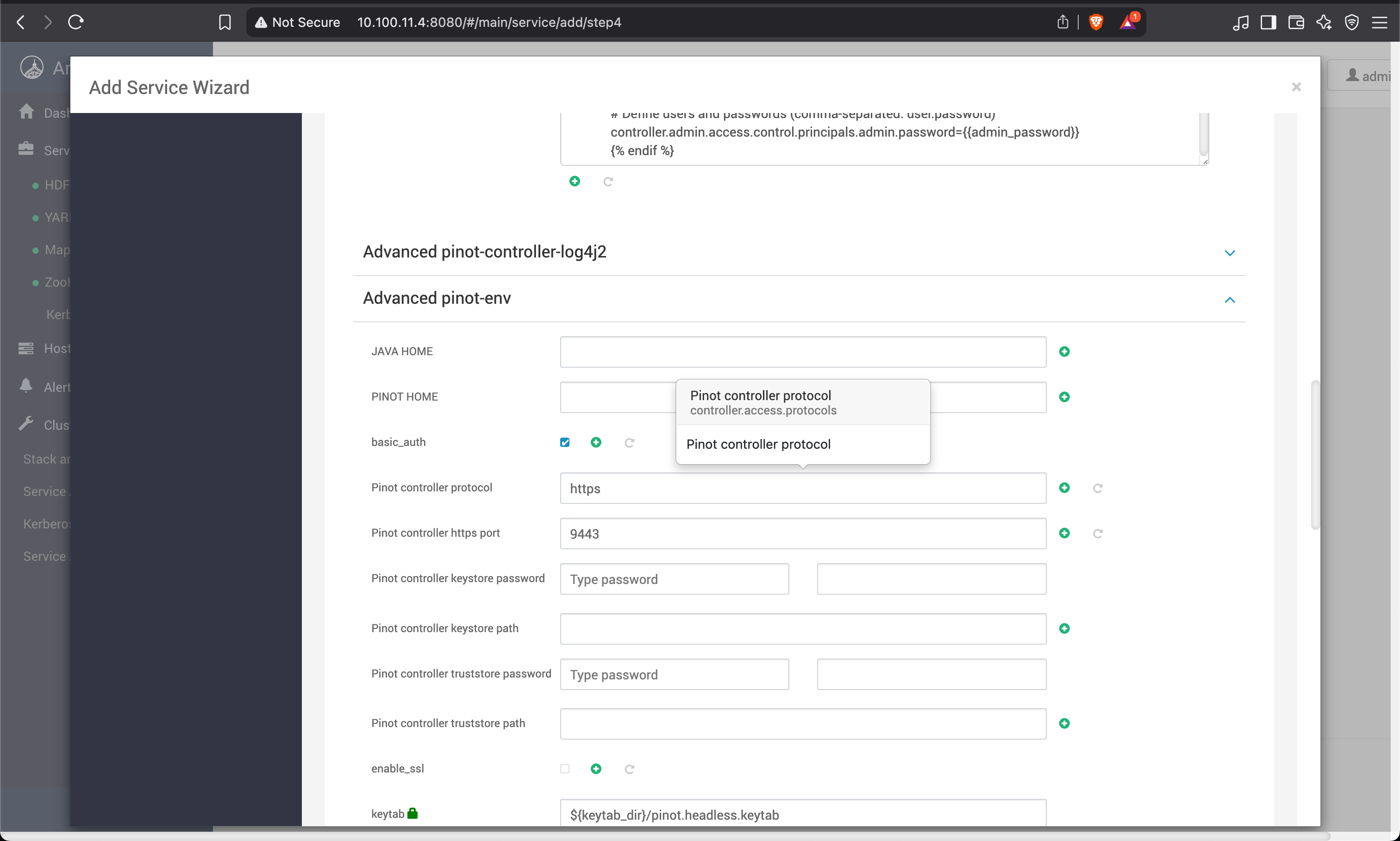
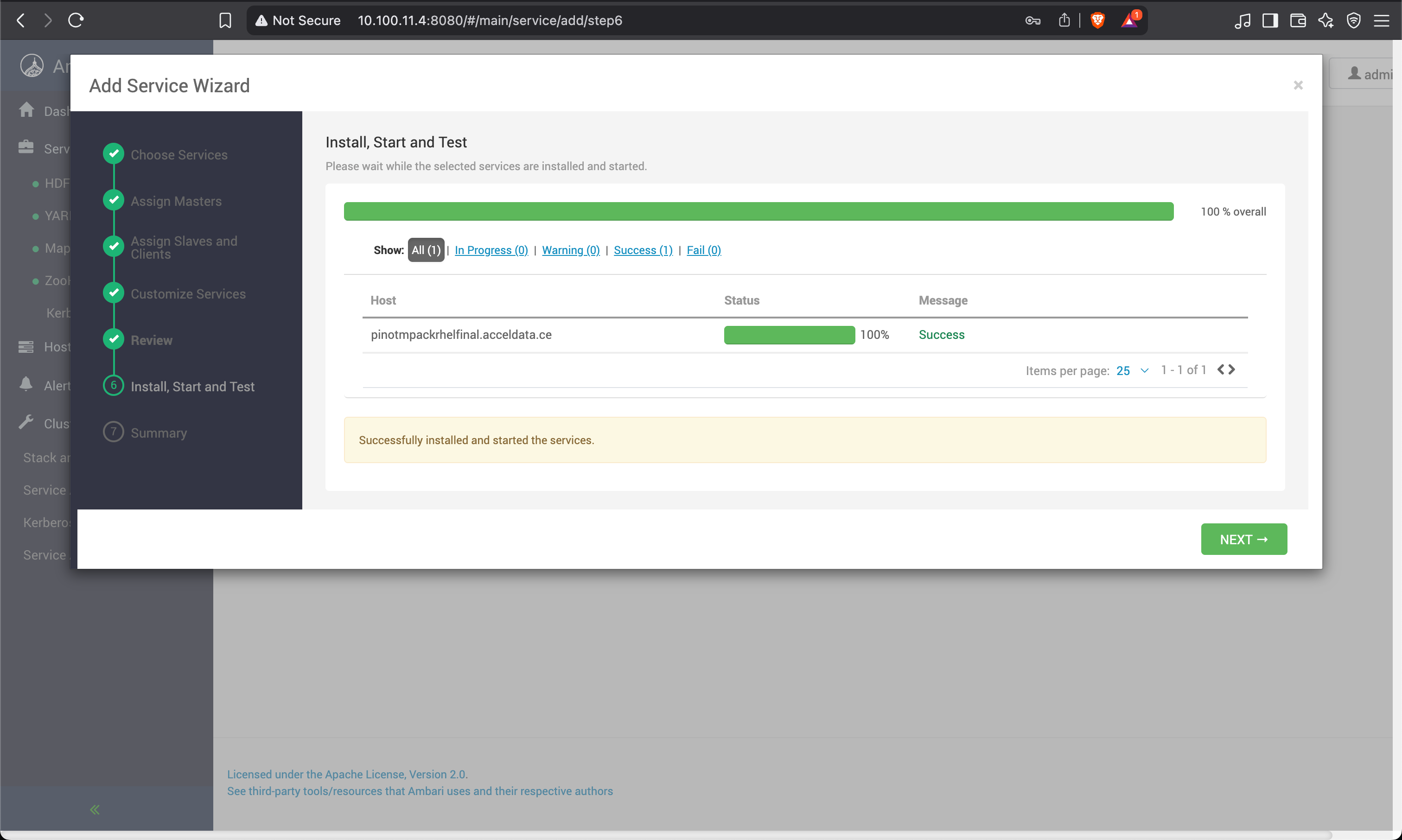
Access the Pinot Controller UI
After installation, access the Pinot Controller UI via the Quick Links in Ambari.
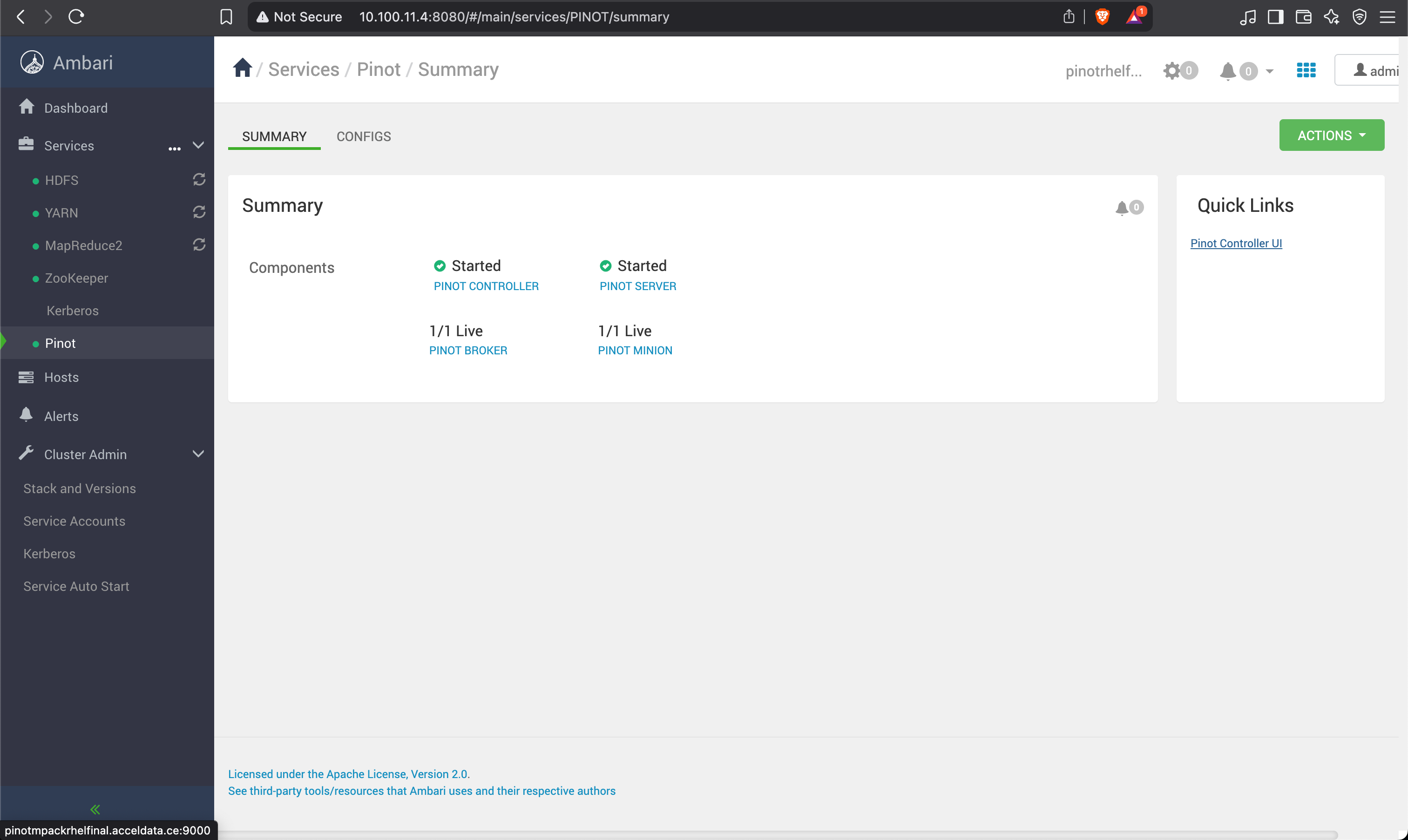
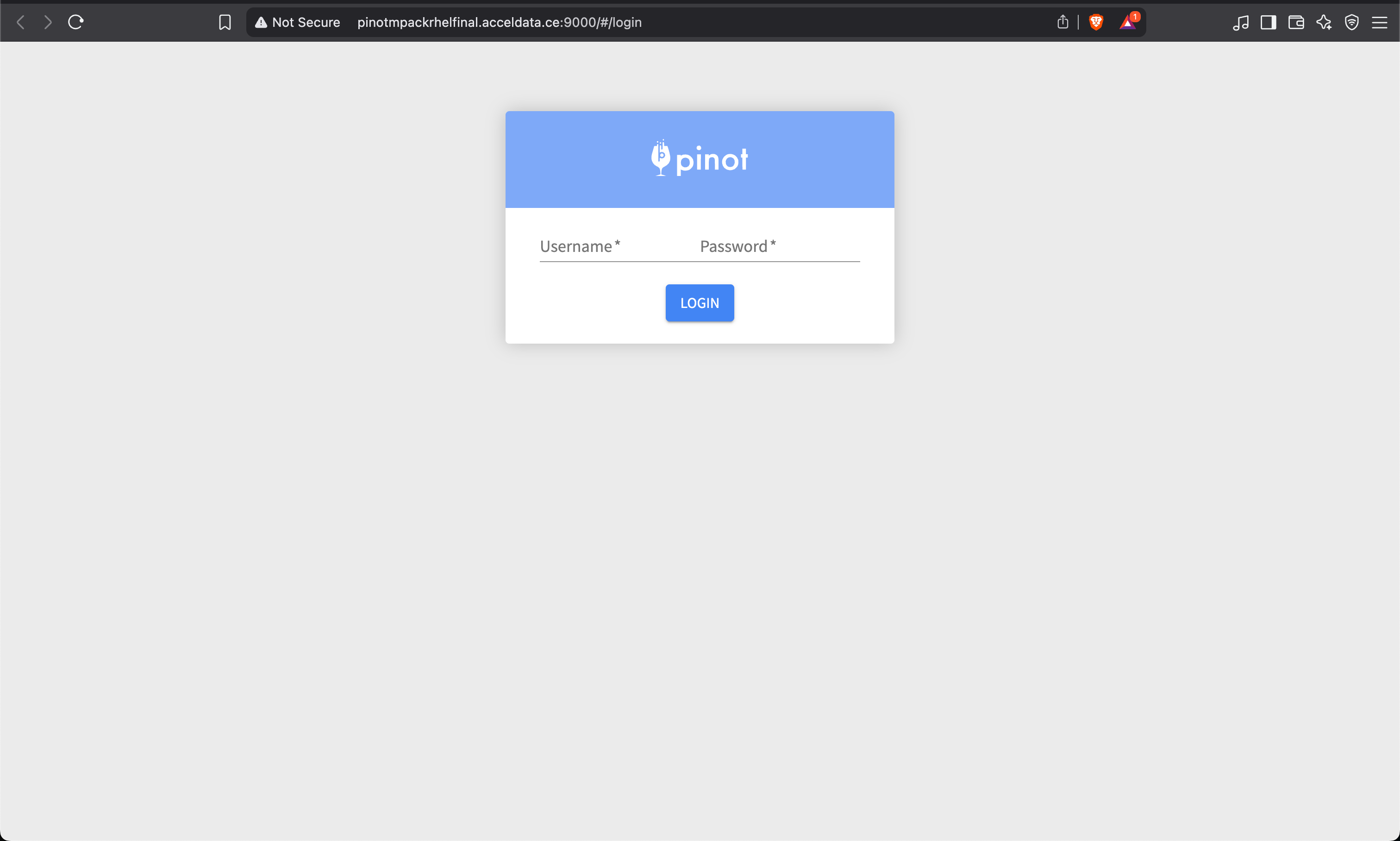
Default Credentials:
- Username:
admin - Password:
admin
